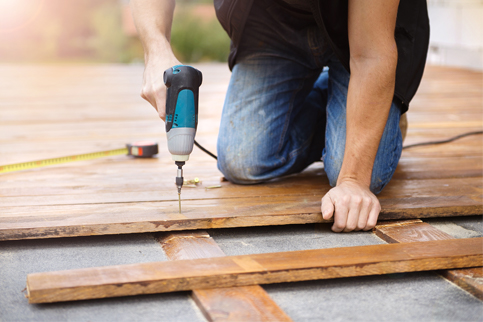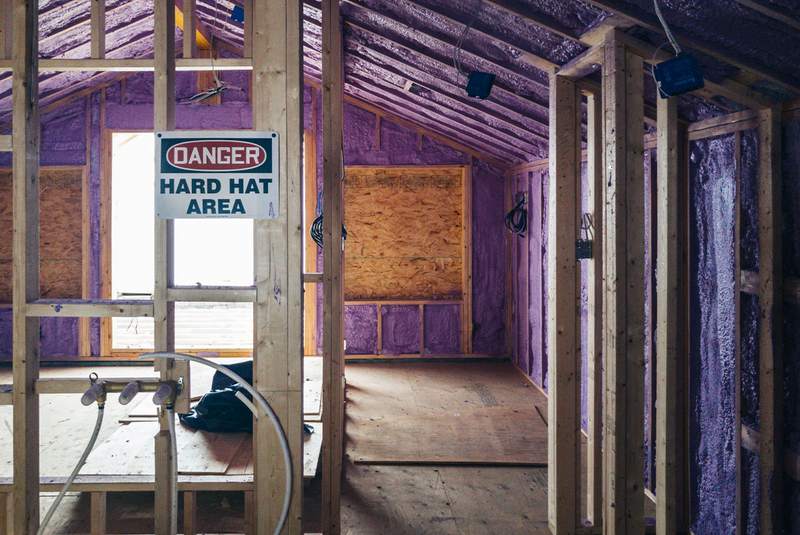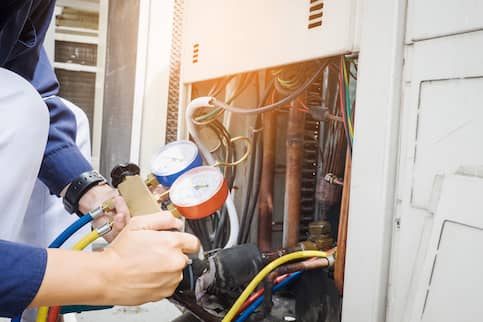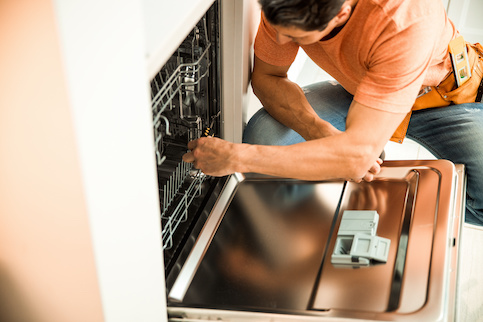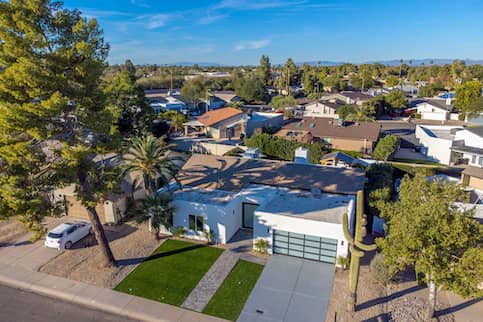Who needs homeowners insurance? Homeowners insurance policies generally cover destruction and damage to a residence’s interior and exterior, the loss or theft of possessions and personal liability for harm to others.
What Is Homeowners Insurance And How Does It Work?
According to the Consumer Financial Protection Bureau (CFPB), homeowners insurance, also known as hazard insurance, is the coverage provided for certain risks, paying for losses and damage to your property if something unexpected happens, like a fire or burglary and is often required by mortgage lenders to protect their investment in your property.
It is a contract between you (the homeowner) and an insurance company, and covers damage to your home, property, personal belongings and other assets in your home. Most people who own a house have a homeowners insurance policy. The first step to obtaining a policy involves determining the coverage you require for your home and personal belongings.
There are several ways to pay for home insurance coverage. You can pay your homeowners insurance directly to the company or it can be paid through an escrow account. If you need to file a home insurance claim after an incident or loss occurs, contact your insurance company to initiate the claims process as soon as possible. Be sure to fill out and submit claim forms within the time allowed by your insurer.
See What You Qualify For
Buy A Home
Discover mortgage options that fit your unique financial needs.

Refinance
Refinance your mortgage to have more money for what matters.
Tap Into Equity
Use your home’s equity and unlock cash to achieve your goals.
What Does Homeowners Insurance Cover?
Homeowners insurance typically covers your home itself, other structures (like garages) on your property, your personal property, liability, medical payments to others, some living expenses in the event that a claim is made that impacts those expenses, and costs associated with loss of use.
Exterior Damage
A homeowners insurance policy typically covers a range of exterior property damage caused by covered hazards and generally extends coverage for damage to your landscaping if the loss results from fire, lightning, vandalism, theft, explosion or natural disasters.
It is important to note that homeowners insurance policies typically have certain limitations and exclusions, which are specific situations or types of damage that are not covered by the policy. Therefore, it is crucial to review your policy carefully and understand its terms, conditions and exclusions.
Common exclusions include damage caused by floods, earthquakes, sinkholes, landslides and mudflows, which often require a separate rider, policy or endorsement for coverage, like flood insurance.
Interior Damage
A homeowners insurance policy typically provides coverage for various types of interior damage, subject to the terms and conditions of the specific policy. If the damage was caused by a covered hazard, the policy will typically cover flooring and carpet, and personal property – clothing, furniture and appliances. However, scratches, dents, spills and other mishaps can be exceptions and may not be covered.
If you have any questions about your coverage or need clarification, it’s best to reach out to your insurance agent or representative for guidance. Insurance policies can vary, and the specific terms and conditions of a policy can differ between insurance companies and jurisdictions. Due to dollar limits on what insurance companies may cover, the maximum amount the insured can collect may not be enough to repair or replace the property to its original condition.
Replacement cost and actual cash value are two different methods used by insurance companies to calculate the value of property or items that are damaged or destroyed. The replacement cost is the amount paid to replace property or personal belongings without any deduction for depreciation. The actual cash value is the replacement cost value minus depreciation.
Here are some examples of items that may require separate personal property coverage: jewelry, fine art, collectibles, musical instruments, firearms, electronics, computer equipment and fur coats.
Homeowners insurance typically provides coverage for additional living expenses (ALE) if your home becomes uninhabitable due to a covered hazard. It helps reimburse you for the expenses you incur while temporarily living elsewhere.
Here is how a home would be covered under loss of use: temporary housing or lodging (hotel, motel or apartment rental), increased living expenses such as restaurant meals or groceries (in excess of the amount you normally spend), costs to move and store your family’s belongings, boarding fees for pets, additional travel expenses or transportation costs to get to and from work and other regular activities and other necessary expenses you incur as a direct result of being unable to live in your home.
Liability Coverage
All standard homeowners insurance policies include liability coverage. Here is what is typically included under homeowners insurance for liability coverage: personal liability, bodily injury, property damage, legal defense and advertising and personal injury.
The personal liability portion of your homeowners insurance policy covers you against lawsuits for injury or property damage that you or your family members cause to other people. If someone gets harmed on your property, your personal liability coverage helps pay for their medical fees and other potential costs.
It is designed to cover the costs of legal fees, court judgments and settlements if you are held legally responsible for causing harm to someone else or their property, helping protect you from the financial consequences of potential lawsuits or legal claims. It is important to note that liability insurance has coverage limits, which represent the maximum amount the insurance company will pay for covered claims.
Many things that are not covered under your standard policy’s liability coverage typically result from neglect and a failure to properly maintain the property – termites and insect damage, bird or rodent damage, rust, rot, mold and general wear and tear are not covered. Here are some other common scenarios that may not be covered under liability coverage for homeowners insurance: intentional acts, professional services, motor vehicle accidents, injury to household members, damage to your own property and business activities.
What Is The Average Cost Of Homeowners Insurance?
The average cost for homeowners insurance in the United States is $119 per month, or $1,428 per year. Homeowners in the United States can expect to pay around $1,200 to $2,000 per year for homeowners insurance.
Homeowners insurance premiums are largely determined by the insurer’s risk that you will file a claim. They assess this risk based on past claims history associated with the home, home location and neighborhood, home age and condition, home replacement cost, home value and contents, deductible amount, home security, your credit score and liability coverage.
Take the first step to buy a home.
Quicken Loans® lets you get to house hunting sooner.
Home Insurance FAQs
Here are a few answers to commonly asked questions about home insurance.
What’s the difference between homeowners insurance and a home warranty?
Homeowners insurance and a home warranty are two different types of protection for your home, covering different aspects and offering distinct benefits. A home warranty covers you primarily for normal wear and tear of certain major appliances and systems. On the other hand, homeowners insurance covers damage to the house and contents due to covered hazards. Both can provide valuable protection, but they serve different purposes and cover different aspects of homeownership.
How much homeowners insurance do I need?
The first step in choosing how much homeowners insurance you need is usually doing a full assessment of your home. Determining the appropriate amount of homeowners insurance that you need depends on several factors, including the value of your home, the cost to rebuild or repair it, the value of your belongings and your personal circumstances. As an owner, it’s generally a good idea to have an overview of your home and what you need covered before shopping around for quotes. Here are some steps to help you assess how much homeowners insurance you should have: calculate the replacement cost of your home, assess your personal belongings, evaluate liability coverage needs, consider additional living expenses, review local regulations and insurance requirements and seek professional advice.
How much is flood insurance?
Flood insurance covers water damage from heavy rain, melting snow and overflowing bodies of water. The cost of flood insurance can vary significantly depending on various factors such as the location of your property, the flood risk in the area, the coverage limits you choose and the type of policy you opt for. The average federal flood insurance policy costs about $742 a year. Here are some other factors that can affect the cost of flood insurance: flood zone, elevation, coverage limits, deductible, building characteristics, base flood elevation and insurance provider.
How do I lower the cost of my home insurance?
The price you pay for your homeowners insurance can vary by hundreds of dollars, depending on the insurance company you buy your policy from. Lowering the cost of your home insurance can be achieved through several strategies. Here are some ways to help you lower your home insurance costs: shop around, increase your deductible, make your home more disaster resistant, improve home security, maintain good credit, seek discounts, bundle your policies, review coverage limits and avoid filing small claims. When you’re buying a home, consider the cost of homeowners insurance and remember to consult with your insurance agent or provider directly to understand the specific discounts and factors that can impact your home insurance rates.
The Bottom Line
Understanding what homeowners insurance is and how does it work can be challenging for anyone, but this quick guide can help. Obtaining homeowners insurance might not be fast or easy, but it can be realistic and attainable – you just must be prepared to put in the work to figure out the right coverage for you. There are resources that you can use to buy a homeowners insurance policy for the right price with the mortgage that is right for you.
Conduct your own research on the previously mentioned homeowners insurance coverage and cost to find a policy that best fits your needs.
See What You Qualify For
You can get a real, customizable mortgage solution based on your unique financial situation.

Mike Lerchenfeldt
Mike Lerchenfeldt is a mindful teacher and freelance writer. He's a graduate of Oakland University with a degree in education and awards for exemplary volunteer service. He teaches English/language arts in Chippewa Valley Schools. This dad of two enjoys exploring places in metro Detroit and beyond while being outside, and has traveled to Japan and New Zealand with exchange programs.
